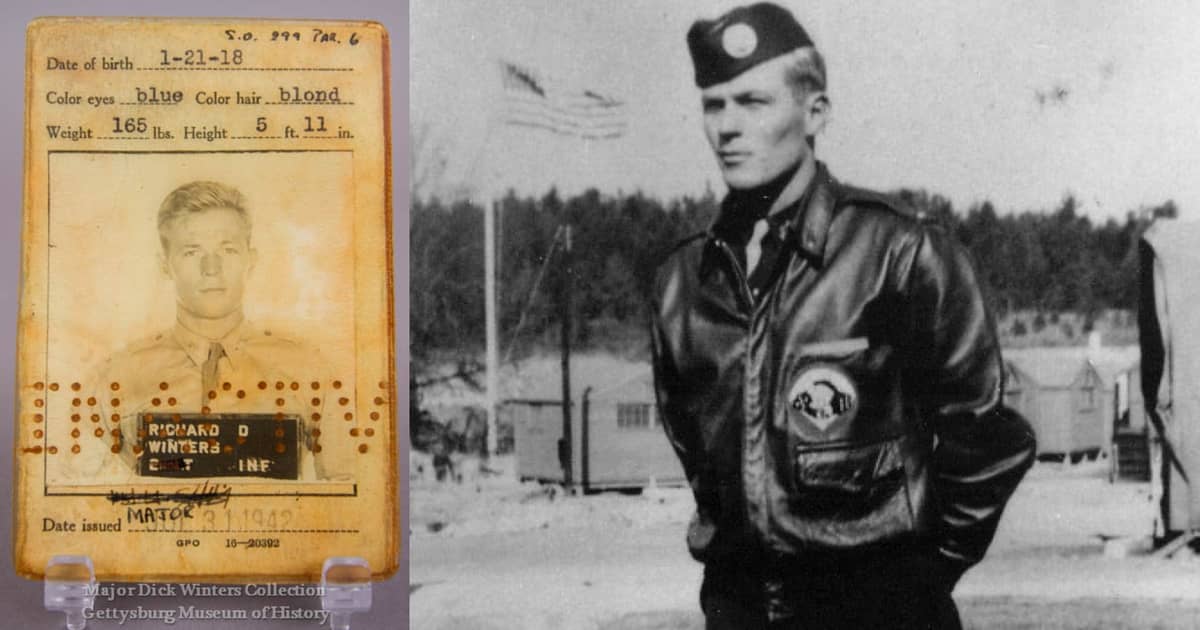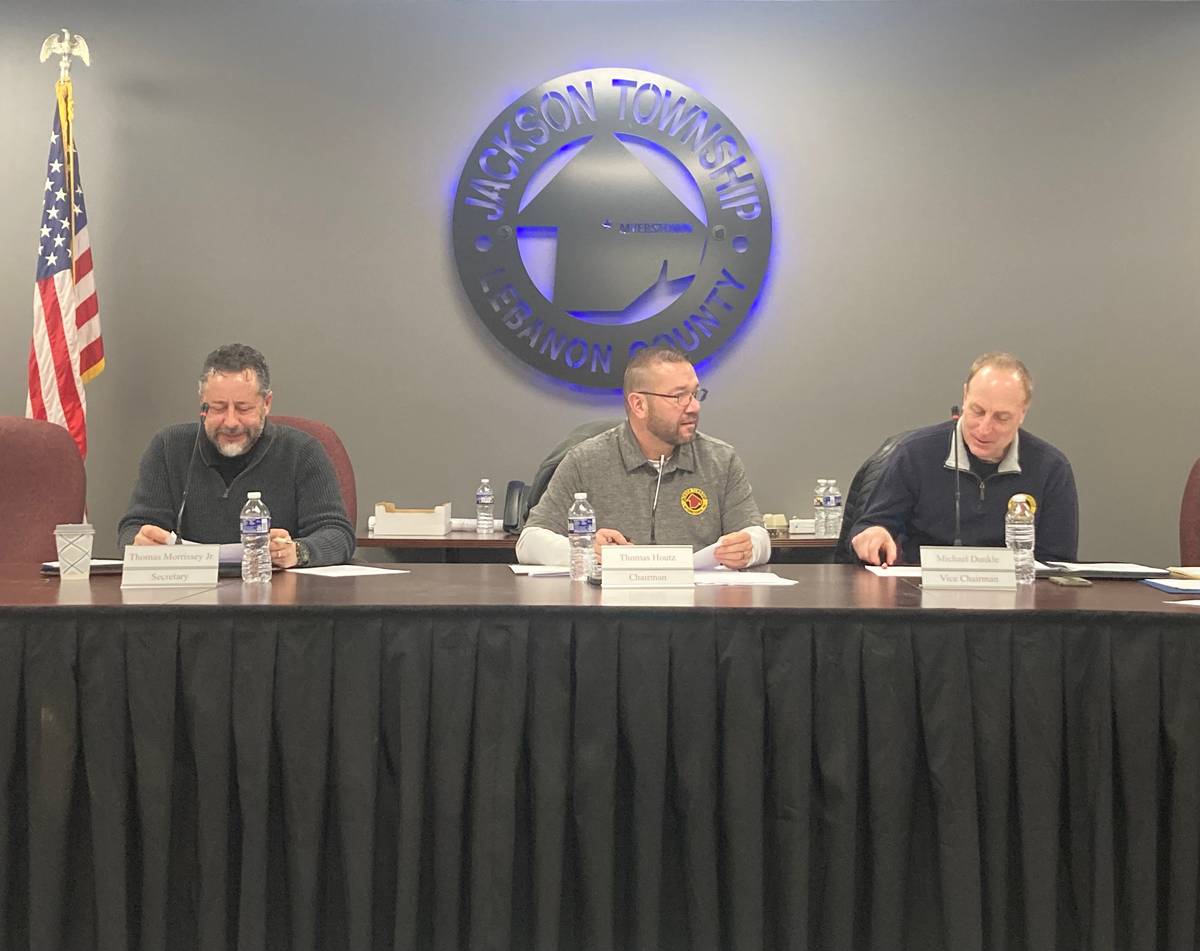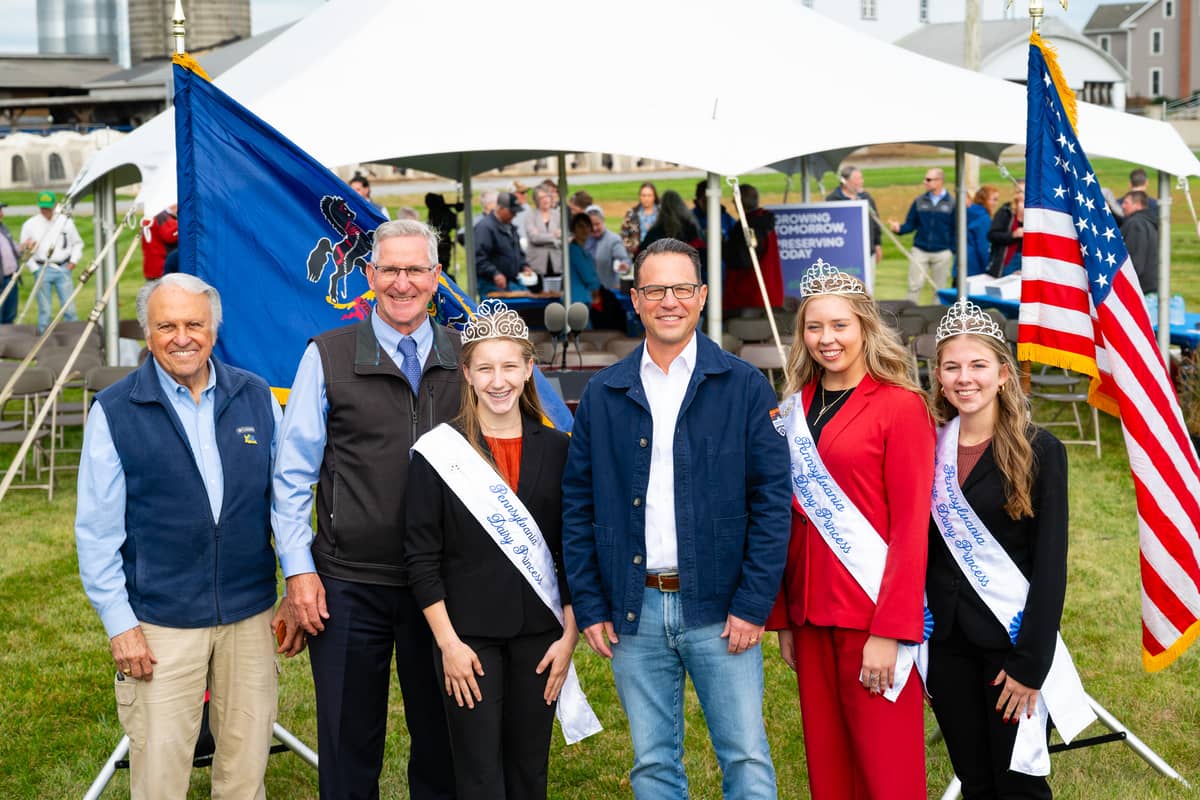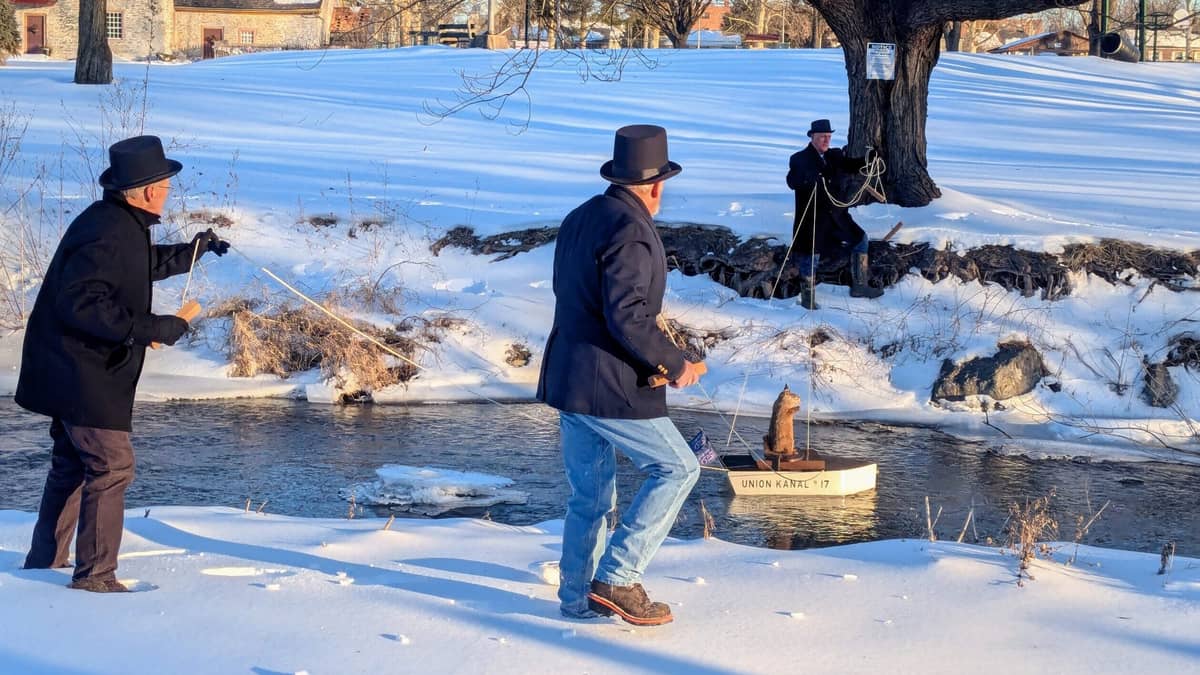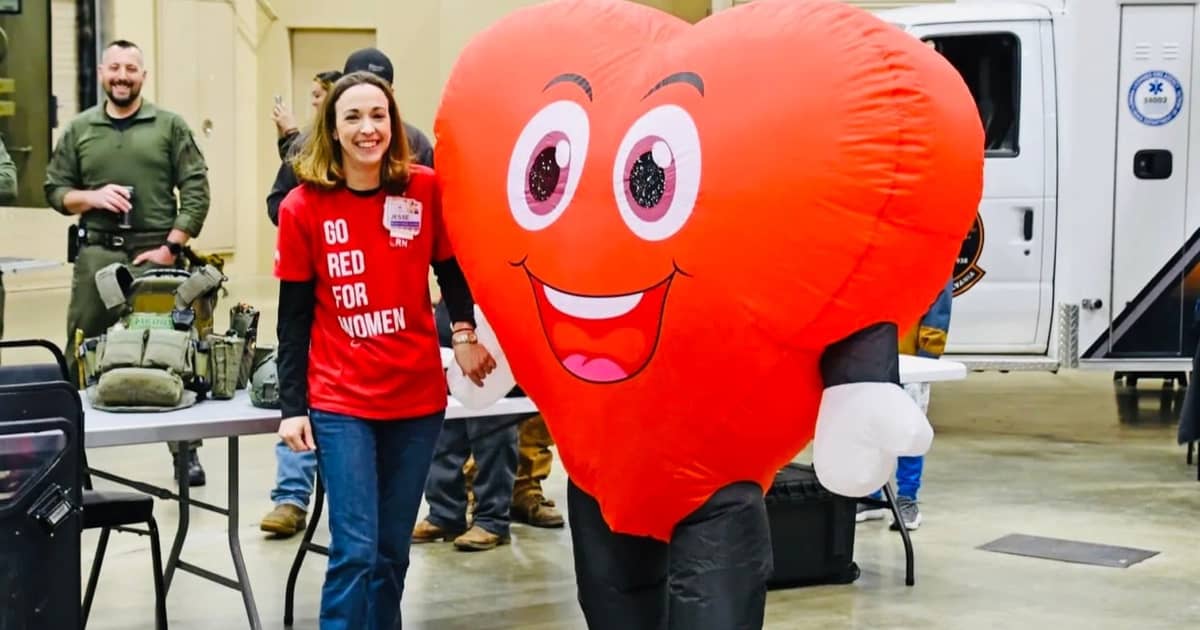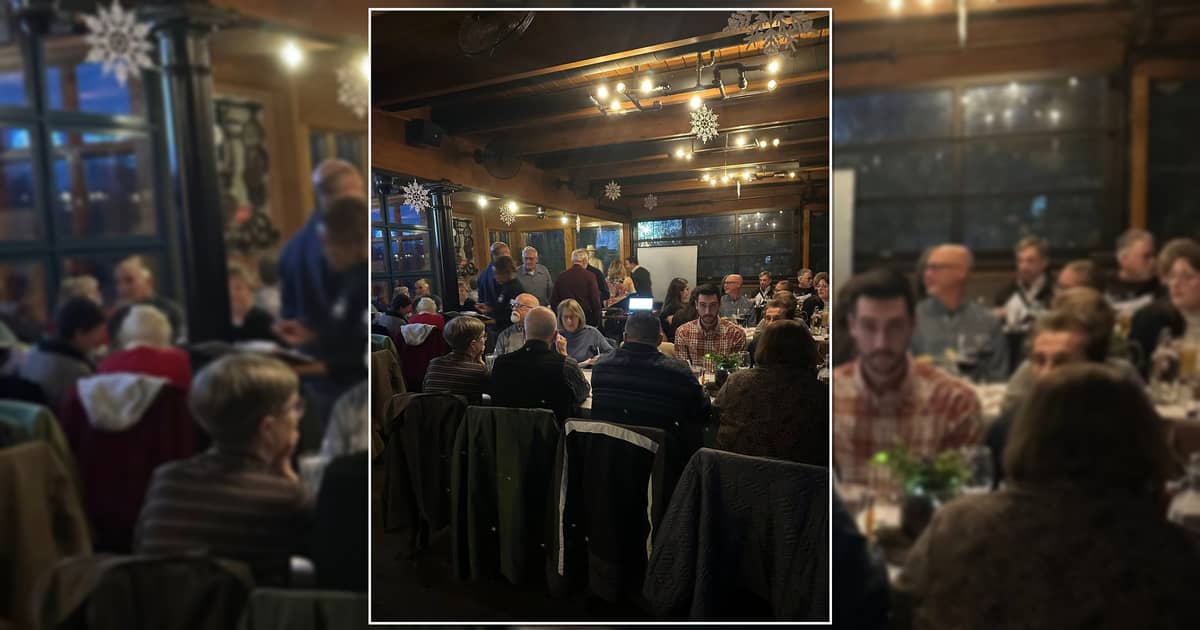This article was originally published on Jan. 21, 2019. Since then it’s been updated it with more information about this local war hero.
Major Dick Winters, the World War Two vet made famous by the book and miniseries Band of Brothers, would have been 106 on January, 21, 2024.
Although Major Winters is most commonly linked to Lancaster and Dauphin Counties, he had significant ties to Lebanon County as well.
In case you aren’t familiar…
Richard “Dick” Winters was born in New Holland on January 21, 1918, and attended Franklin & Marshall College before enlisting in the US Army as a private in 1941. He went on to attend Officers Candidate School and become a paratrooper.
Lieutenant Winters parachuted into Normandy as second-in-command of Easy Company (Company E of the 506th Regiment, 101st Airborne Division). He was thrust into leadership after his predecessor was killed in action.
The Winters-led Brécorut Manor Assault was instrumental in securing Utah Beach and the larger victory at Normandy. Winters was promoted to Major in the winter of 1944 following his company’s occupation of Bastogne in the Battle of the Bulge. He also took part in the liberation of Dachau and the occupation of Hitler’s Eagle’s Nest.
Larry Alexander’s book, Biggest Brother, provides many details about Winters’ links with Lebanon County, which weren’t well documented in contemporary newspapers.
Winters returned to Central Pennsylvania in 1945 via Fort Indiantown Gap, where his parents picked him up and saw him for the first time in three years.
Winters would move to New Jersey for a few years before being called back into service for the Korean War. He was assigned to the military base at Fort Dix, also in New Jersey, where he worked in training roles before ultimately resigning his commission because he had seen enough war and did not wish to go to Korea. This would lead to a chain of events that culminated with him taking a job with Myerstown-based Whitmoyer Labs as a salesperson.
Winters based his family out of Adams County at first but by 1955 he had begun building a house for his family on a 300-acre Fredericksburg farm that had been operated by another family under agreement with Winters who had purchased the land when first moving back to the area. After Whitmoyer was acquired by Rohm and Haas, he moved briefly to Poorbaugh Grain in Lancaster.
According to Alexander’s book, Winters’ business break came in the form of a new venture, R. D. Winters Inc, that emerged when an old Whitmoyer colleague now at Hershey Foods hooked him up with the plant’s byproducts like cocoa bean shells, nut and chocolate crumbs, sugar, butter, etc. Winters converted these into a cattle food additive that apparently proved popular with Amish and Mennonite farmers in the area.
Winters would spend more and more time at a second home he purchased in Hershey, closer to his growing business, from which he retired in 1996. He’d still maintain ties with Lebanon even as he became famous with the miniseries, and took none other than longtime friend and Lebanon architect Bob Hoffman to the HBO premiere.
Winters died January 2, 2011 at Columbia Cottage in Palmyra. His wife of more than 60 years, Ethel, died just over a year later on April 11, 2012.
Winters collections are held at Gettysburg as well as the Hershey Derry Township Historical Society, to which Major Winters donated his personal belongings.
For more on Winters’ life, check out Alexander’s book here.

